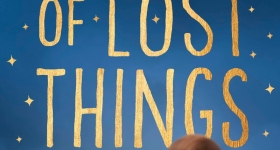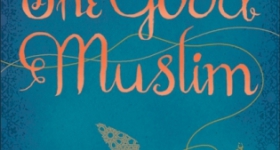By Cathlin Goulding and Abigail Licad
To commemorate Hyphen’s 10th year in print, we selected 10 emerging young authors from various genres and asked them to reflect on writers they admire. Their responses attest to the depth and richness that has informed Asian American writing, as well as the exciting directions toward which Asian American literature is expanding. We can’t wait to see what this newest generation of writers delivers next.
Here a sampling of 2 of the 10 writers we selected:
Bao Phi on David Mura
Reading poet Bao Phi’s first collection of poems, Sông I Sing (2011), there is no doubt that a savvy and delightfully aggressive voice has been added to the Asian American poetry canon. The forcefulness of Phi’s works derives from his spoken word roots — Phi has been a two-time Minnesota poetry slam champ, a finalist for the National Poetry Slam and a guest on HBO’s Def Poetry Jam. Like the Whitman poem his collection’s title references, Phi’s work furiously circles questions of selfhood as well as depicts the textures and particularities of a less visible Asian America.
David Mura’s After We Lost Our Way (1998) remains one of my favorite volumes of poetry. David is able to write with courage, complexity and honesty, even when the results are brutal. There is the beautiful lyricism of the persona poem “Letters from Poston Relocation Camp.” There is the relentless, breathtaking intensity of the polemic “Song for Uncle Tom, Tonto, and Mr. Moto.” And there are the heartbreaking layers of “An Argument: On 1942,” where the mother accuses the author of being overdramatic about the internment camps.
In addition to his fine work, David has also influenced me by being a tireless supporter of community. He has influenced generations of Minnesota Asian American writers. You may not agree with everything he said, but he leads through example. He’s engaged and invested: Debate with him, discuss with him, build with him, because he’ll be around when many Asian American writers of his level wouldn’t be.
Jenny Zhang on Hans Christian Andersen
We first discovered fiction writer and poet Jenny Zhang through her blog, Fashion for Writers. Born in Shanghai, China, Zhang studied ethnic studies at Stanford and later attended the Iowa Writers’ Workshop. Her work is surprising, forthright and confessional — she has a striking ability to write about topics as varied as fashion, race and childhood with searing and spellbound language.
Zhang is a regular contributor to Rookie magazine (founded by fashion wunderkind Tavi Gevinson). Her book of poems, Dear Jenny, We Are All Find (2012), was recently published by Octopus Books.
When I was 10, I sobbed for myself in secret. “Will anyone ever love me?” I scrawled in the pages of my diary. I had an old copy of Hans Christian Andersen’s fairy tales. When freed from the tyranny of the classroom, suddenly “The Ugly Duckling” wasn’t about judging a book by its cover, but about how tenaciously resourceful you had to be if you were going to survive this cruel world. “The Little Mermaid” wasn’t a story of love and sacrifice, but rather a story about an impotent mermaid whose unrequited love for the prince renders her forever emotionally stunted.
Over the years, I have returned to Andersen for the strangeness and hilarity of his details and for his ability to inscribe his life into a form that seems intuitively hostile to autobiography. I owe my obsession with writing “emotionally honest” stories to Andersen, who once wrote at the end of “The Snow Queen”: “There they sat, two grown-ups, and yet they were children — children at heart — and it was summer.” And that’s how I feel when I sit down with his writing — like we’re grown up, yet still children at heart.
This was a preview of The Generation Issue. To read the full story, subscribe to Hyphen or pick up a copy at a newsstand near you.









Comments